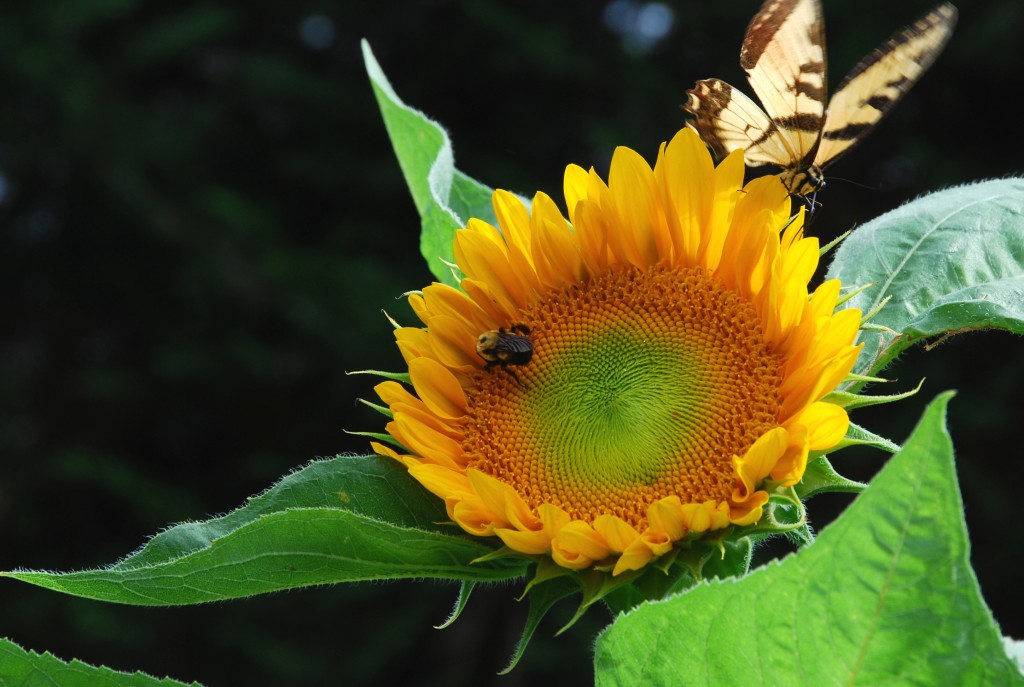With the humidity and precipitation making the Piedmont Triad feel like a tropical rainforest, I have to admit that I’d rather be at the beach or in the mountains – except that I cannot miss the the glorious flowers blooming all over my garden! Many of them are blooming later than usual, but my hope is that they will be fabulous longer into the fall without burning out in our usual heat.
My Course #5, the Cut Flower Workshop is such a fun event that I have decided to open it to new students. The date is Saturday, August 10th, 9am to noon. The course fee is $40. We will be in the garden 9 am – 10:30 discussing the best annuals and perennials to grow for long lasting cut flowers, when to cut them and how to condition them to extend vase life. We will move into my air-conditioned workshop for flower arranging demonstrations. You will have time to make your own fresh arrangement to take home. This is a very fun morning to share with friends!
Send me a note from my “Contact Ellen” page to register: https://learntogarden.anventure.com/contact-ellen/ Attendance is limited, however other dates may be available. Also contact me if you would like to order a fresh arrangement. Florists were right. Flowers work for any occasion, perfect to say “Thank you”, “Happy Birthday”, “Get Well”, “I missed you”, “I love you!” … Really, is there anyone who does not smile when you bring them flowers? (And even better if they did not come from the grocer’s refrigerator case.)
Don’t wait any longer to sow seeds for fall kale, collards, carrots & rutabagas. You can replant beans, cucumbers, and squash now too. Wait for August 1st to sow turnip seed. Transplants of cabbage, cauliflower & brussels sprouts can be planted now. Seeds will come up quickly in our warm wet soil and another thunderstorm.
Local farmers and County Extension Agents have warned of the exploding bug population and “late blight” of tomatoes coming on extremely early, along with many other fungal diseases. I am already experiencing this. My tomatoes just won’t ripen. The few I have picked are watery, clearly in need of more sunshine. Several had bottom end rot from too much rain. Thankfully my squash, cucumbers and eggplant are going strong.
The Japanese beetles are trashing my beans and okra. It has been impossible to slow them down when the Sevin spray gets washed off as soon
as I spray it! Unfortunately, the Kudzu bugs have also found my pole beans. The Asian import Debbie Roos warned us about last year has made it to Summerfield. Click this link for photos and more information about what else they eat: KUDZU bugs Similar to Japanese beetles, Kudzu bugs eat your plants not just kudzu, but worse, they are reported to multiply like crazy! Liquid Sevin or Pyrethrin will help keep them under control. Spray at night to avoid hurting your pollinators.
Watch out for Yellow Jackets as they are out in full force. They got me at least 8 times as I absent mindedly walked by a nest, well hidden in the thick grass. OWW!!! Man, it hurt! Those little devils came after me in a swarm as I ran away screaming and pulling them off of me. My ankle swelled to the size of a football.
My horticultural tip for you is how to get rid of them. NOT Gasoline! (It smells awful, Kills your grass, wrecks the soil and pollutes the water table.) Good old SEVIN, mixed according to directions (about 3 tablespoons per gallon) and poured down their hole will wipe them out. Do this at dusk when the bees have gone in for the night; you will kill more bees and are less likely to get stung.
Wasps can be sneaky too. They like to nest in the crevices of my stacked stone wall around the herb bed. I have learned that a preemptive spray wasp and hornet killer on the wall will keep them from nesting and prevent those unpleasant surprise attacks.
BTW, those hornet-looking bees that leave piles of sawdust under your deck railings are called carpenter bees. They may turn your wood to Swiss cheese, but they are not likely to sting you.
I bid a very sad farewell to 3 of my plum trees that had became so diseased from black knot fungus that they could no longer produce edible fruit. The apple trees have cedar apple rust (another fungal disease) so bad that their leaves look totally brown. All this because it would not stay dry long enough for fungal sprays to work. Meanwhile my figs, and Japanese persimmon trees, mulberry tree and raspberries are totally healthy and growing like they are on steroids! It is clear to see which fruit has earned it’s space in the garden.
Best wishes to all. May your only garden chore be to harvest what you have already sown!
Ellen
Leave a Reply